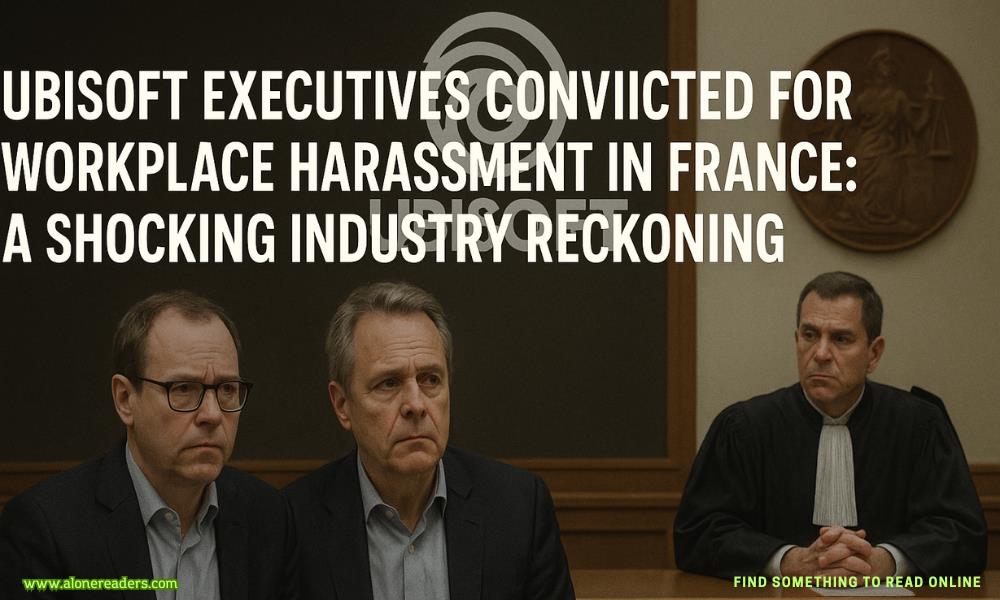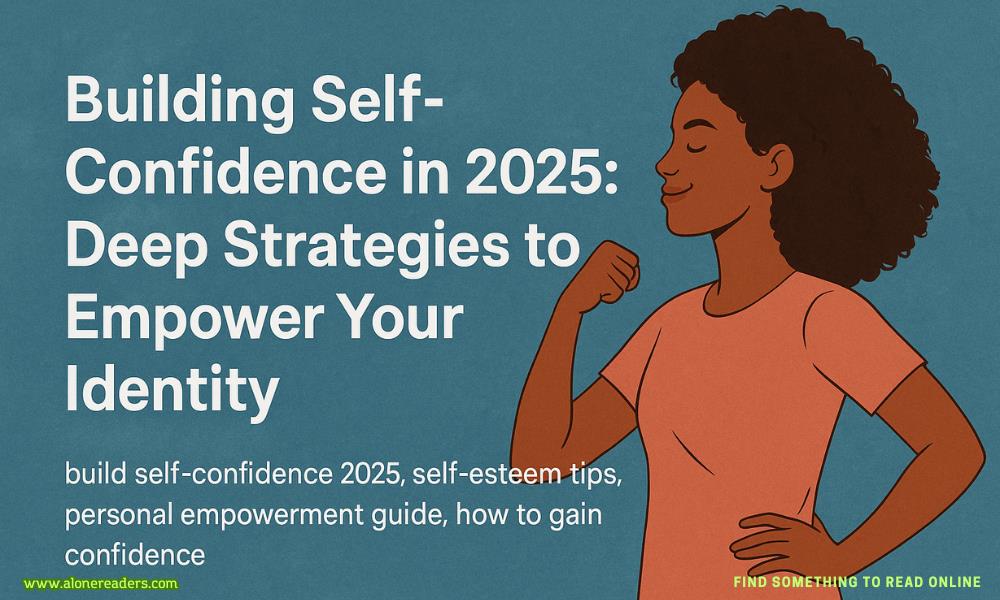Page 7 of Jinxed
I start my hike, pushing aside the shrubs, trying not to think about the ticks and bugs that lurk inthe long grass. I hear the start of Zora’s conversation with the Moncha guard. ‘Hello? Yes, I’d like to report a lost baku...’
The deeper I get into the ravine, the steeper it becomes, and Zora’s voice fades away as I concentrate on my footing. Stupid rational thoughts crowd my brain likehow am I going to get back up out of here? AndWhy did I leave my phone behind?I push them away again.When I look back up at the bridge to try and make sure I am following Linus’s most likely arc, I can barely make out the metal railings. From here, it just looks as if I am in a forest – all I can see are the tops of the trees and the shrubs and the blue sky. It could be peaceful.
Then, I’m almost forced to my knees as there’s a loud screech of iron against iron and a strong gust of wind as atrain hurtles by on the tracks below. It intensifies my need to find Linus – I only hope the baku wasn’t thrown as far as the tracks. He would be squashed dormouse parts if that was the case, and impossible to fix.
I’m surprised by how quickly Zora has bonded with Linus – it’s one of the magic side effects of the bakus that Monica Chan said she never could have predicted. Of course, she had knownthat having a companion would be part of the robot’s appeal – but what started out as a tool to help her overcome her smartphone addiction exploded once it hit that mass market. People really came tolovetheir bakus. And Monica was keen that she built each machine to last, with upgrades fully backward-compatible. She herself still had her first gen model – a slinky cat by the name of Yi – andthe Moncha marketing machine played on that for their slogans.A baku is for life – so get one for Christmas.
My own grandma would tell me stories of how people used to be addicted to their phones, sitting at the dinner table scrolling on tiny screens rather than talking to each other. And they had to be charged every single day, tying you to the wall. Sometimes, if you used them too much, theyeven lost charge in the middle of the day and you were stuck, phoneless, until you could find a plug socket. When Toronto passed a bylaw that stated you couldn’t use plug sockets in public places – because people were sitting there forhourswaiting for their phones to juice up again – there was almost a revolt.
That was the Moncha breakthroughpart two.She always credited her business partner,Eric Smith for the discovery, even though I’m positive she had more to do with it than him. Still,together, let’s say, they discovered a way to convert the natural kinetic energy of human movement into battery charge for the bakus. Combined with solar power back-ups, as long as they spend some time being ‘leashed’ to their owner, they remained fully charged. It was a strange concept to get usedto at first, but the procedure to install a leash was no more invasive than an earring. One gun and done. I’d had my leash put in that morning – I just hadn’t connected the beetle to it yet. But once I did... maybe I would bond with it.
Beetles are the best bakus. They take up hardly any energy; they don’t even need to be leashed every night. They’re virtually indestructible. They’re super customizable. Beetles are the perfect companions.
Yeah, says everyone who can’t afford anything different.
I think about Companioneers Crescent, the road we would have moved into had my dad not... disappeared. If I’d gotten into Profectus, I could have guaranteed a good life for Mom and myself. A big house. A job for life. Life-long benefits. But once I graduate from St Agnes, I’ll have toleave Monchaville, or else get a Moncha job suitable for a beetle baku owner.
The trains are even closer now and the force of the wind they generate is close to knocking me off my feet. They were recently upgraded to super speedy trains from Japan, allowing people to commute from the suburbs much more easily. The ironic thing was, the challenge of addressing Toronto’s urban sprawl and populationexplosion was solved by so many different people at the same time, the trains barely run at capacity. Moncha, for example, had made a difference in urban planning. Since they offered subsidized accommodation for their employees, most people chose to live in Monchaville, the city-within-a-city, making a commute virtually non-existent. You could live an entire life without ever leaving Monchaville.Other companies had started to follow the model, especially as smaller startups began to merge into huge monoliths to rival Moncha, Google and Apple. None were as good as Moncha’s though.
My foot slips on the muddy ground, and I steady myself by grabbing a branch. The arc that Linus took means that he should have landed nearby – but who knows how far he might have continued to roll down the hill.Zora didn’t have him long enough to install a baku beacon – that will be the first thing I’ll do once I leash my beetle.
I need to think of a name for him. Anything except ‘Beetlejuice’ or ‘Crawly’. People are so unimaginative. Maybe I’ll call him ‘Speck’. Because compared to other bakus, he’s a tiny bit of machinery.
Bakus do have built-in distress signals for if they’re away from their owner’sside or if they’re broken. My ears prick up as I hear a tell-tale beep – not as strong as a normal signal, but maybe the fall damaged that too.
‘Linus?’ I call out. The bakus are programmed to respond to their names. Sometimes it doesn’t work so well with someone other than the owner’s voice, but the beeping speeds up like a chew toy on steroids – I’m sure it must be him. I crash through theovergrown foliage, trying to locate the source.
Then I see him, so small he’s caught in the centre of a huge leaf, right where the foliage meets the stem. I push the leaf down and scoop the little mouse up in my palm. He doesn’t look in too bad shape – his tail is a bit bent and I’ll have to take some test pictures to see if the camera still works, but I’m confident I can fix him.
‘There, there,Linus,’ I say, even though it feels a little absurd to be comforting a robot. He seems to appreciate it though, twitching his nose before giving a final wheeze and all electronic life leaves his eyes. He needs to be leashed before I can assess him any more. Now to find a way out of here.
I place Linus in my jacket pocket and search for a path back up the hill.
The leaf I’d been leaning on snapsas I shift my weight. Before I can grab anything else, I tumble, my shoulder colliding with the ground as I catapult forward and slide deeper down into the ravine.
I scramble with my feet, trying to stop my fall towards the railway tracks and super high-speed trains at the very bottom of the valley. I grab at every passing branch and plant, slicing my palm in the process, but I can’t think aboutit before I launch off a small concrete wall and land on the stony ground below. Something crashes down beside me.
I wait a beat, then another, my breath coming in hard, fast gasps as I wait for pain. I can’t wait too long. I can hear the whine of an approaching train and my feet are way too close to the tracks. I yank them in, curling my arms around my knees, my back up against the wall. I closemy eyes as the train whooshes by me.
It seems to last for ever, the scream of the wind and the debris hitting my face, but eventually it passes. I take a deep breath that fills my lungs. I’m not hurt – or at least, nothing is broken – but I’m going to ache like hell in the morning.
MY HAND SNAPS TO MY POCKET. I almost don’t want to look inside but I do, and breathe a sigh of relief – Linus doesn’t look much worse for wear after my fall. He’s survived one big drop already –I guess another didn’t do him any more harm.
My heart jumps as I see a smear of red on my jeans, my jacket... everywhere. Blood. It’s coming from my palm where I sliced it on the way down. The wound is sharp and clean and gapes like a mouth – my stomach turns just looking at it. I pull out an old gym T-shirt from my backpack, which I awkwardly wrap around my hand to staunch the blood. I needto get home. Now.
The benefit of being by the railway tracks is that I know there are steps for workmen leading down into the valley. I can follow them back up to the main road.
As I swing my bag over my shoulder, I hear a trill of electronic beeping. My instinct makes me think of Linus, but it can’t be him – he’s powered down.
Then I see it. At my feet is a crumpled pile of black metal – thething that fell down next to me. One side is slick with bright red blood – mine, I realize. This is what I must have sliced myself on.
‘Stupid piece of junk,’ I say, kicking it with my boot. It seems to make a tiny mewl of pain – but I must have imagined it. It rolls over against the concrete, revealing a gaping hole, grey and charred around the edges. It looks like it’s been through the mill.
Something catches my eye, and I kneel down to look closer. I blink rapidly, my brain hardly processing what my eyes are seeing. It’s the Moncha logo. At least, I think it is – it’s distorted and half-hidden by what look like scorch-marks. But Moncha-made metal can be valuable – especially when it comes to doing unauthorized repairs on bakus.
The railway lines hum again and I don’t give myselfany more time to think. I scoop the metal contraption into my bag, shoving it to the bottom beneath my smelly gym kit and the new beetle baku I’ve just bought. There might be parts to sell or salvage, if anything.
Then, without wasting any more time, I climb the steps back up out of the valley.















